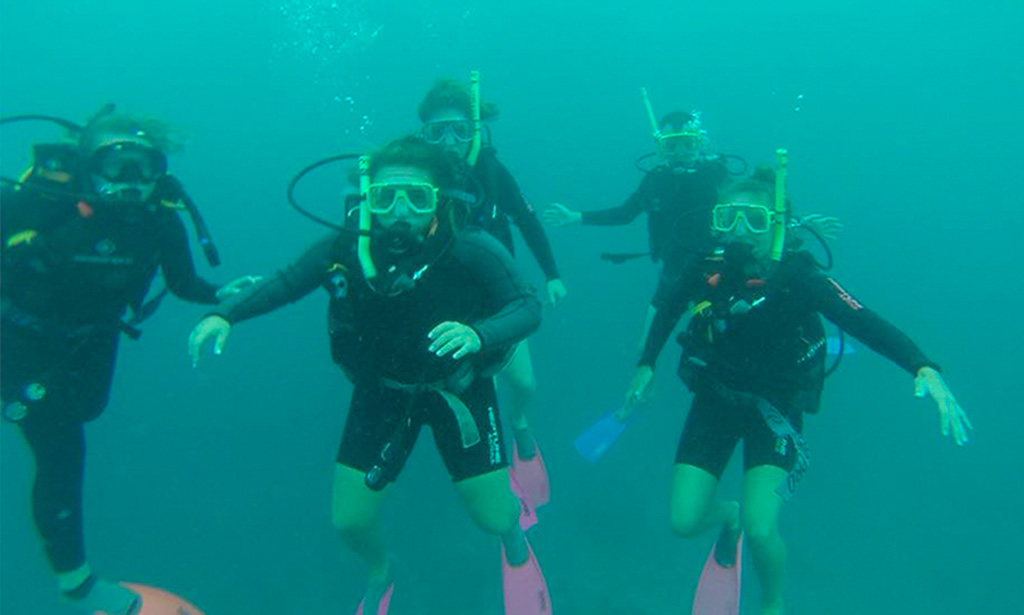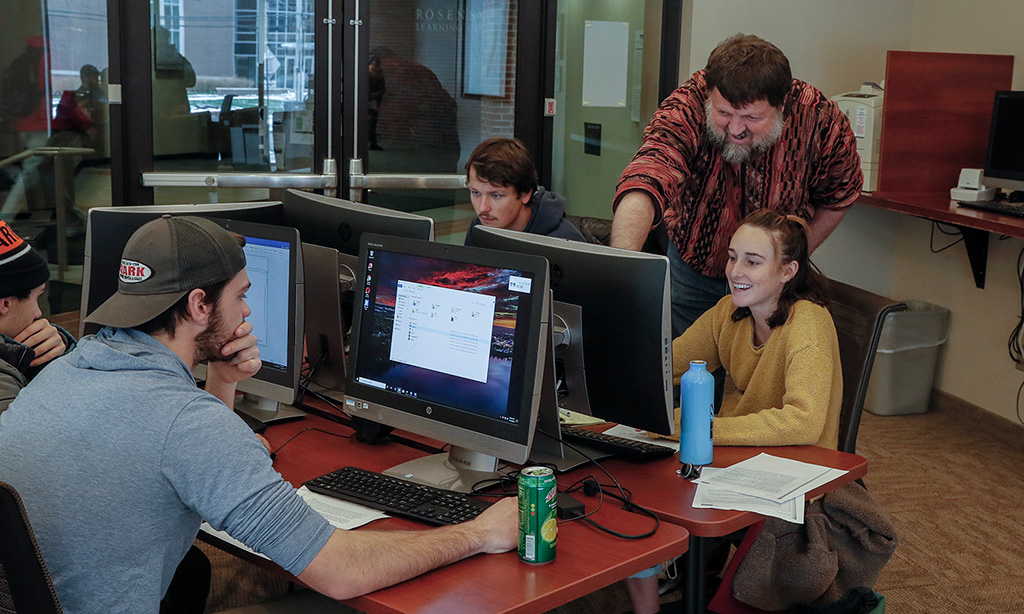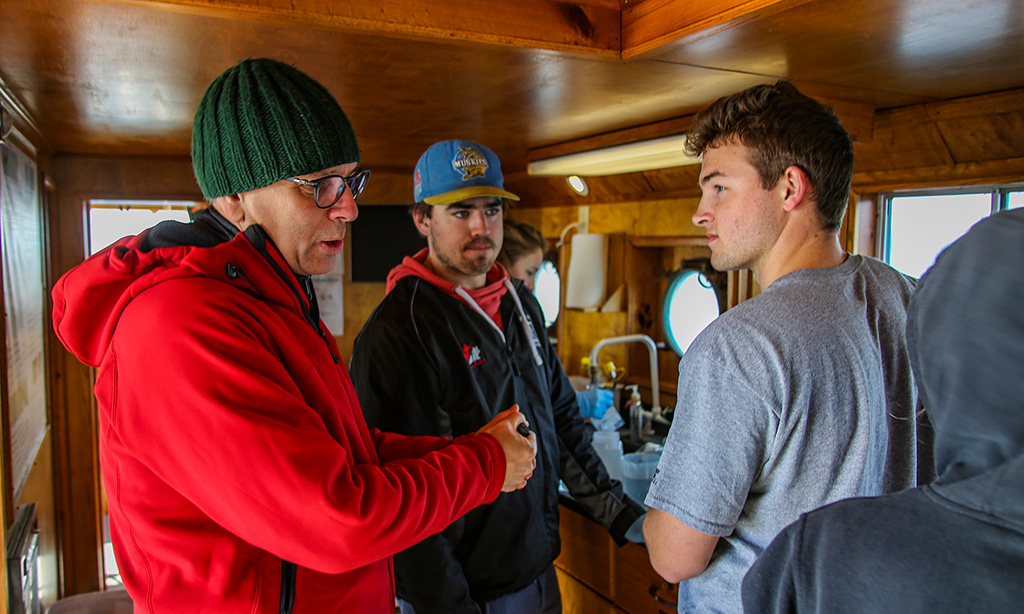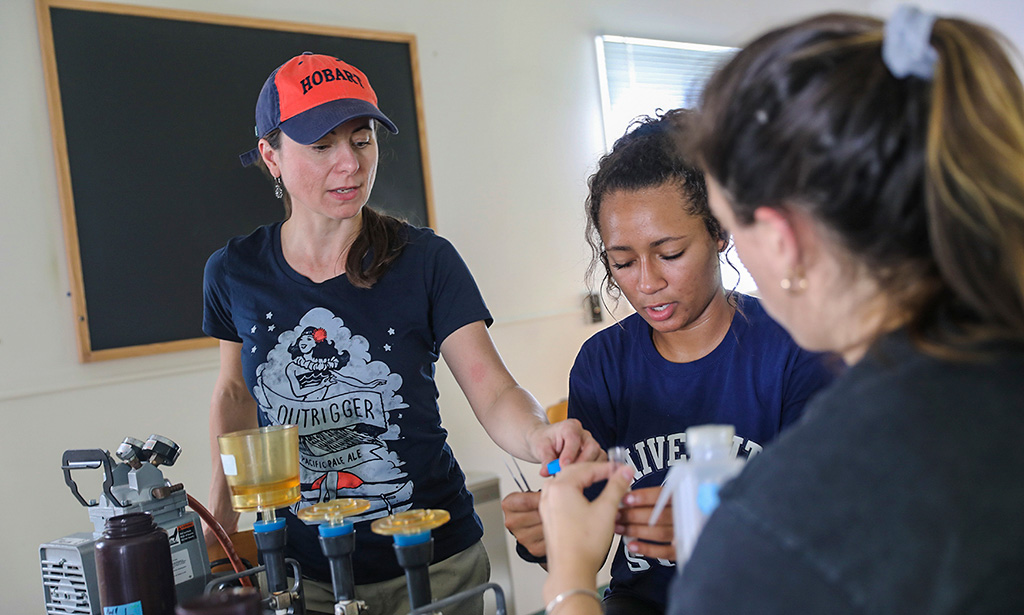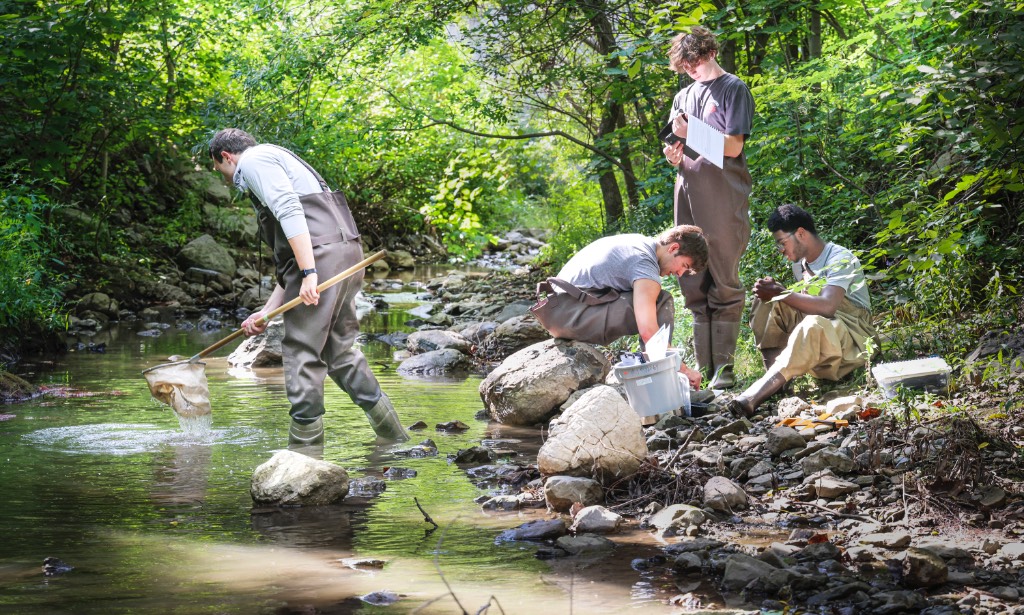Following your studies in Aquatic Science, you’ll come away with a better understanding of how water shapes the world. This knowledge can be used in fields like limnology, hydrology, freshwater or marine biology and conservation. Capstone research work will also prepare you for post-graduate study.
A SAMPLING OF HWS ALUMS WORKING WITH WATER:
Katie Bush ’06
Katie Bush ’06, an affiliated faculty member of the Center for the Environment at Plymouth State University, is the program manager for the Environmental Public Health Tracking Program at New Hampshire’s Department of Health and Human Services and serves as support staff for the New Hampshire Climate and Health Program. An environmental epidemiologist, Bush’s research focuses on the connection between environmental quality and human health.
Rachel Calabro ’93
Rachel Calabro ’93 serves as the Climate Change Program Manager for the Rhode Island Department of Health, a program that educates the public on the connection between climate change and health and works to mitigate associated risks under the guidance of the Centers for Disease Control and Prevention’s Climate-Ready States & Cities Initiative.
Kerrie Gallo ’98
Kerrie Gallo ’98 serves as the deputy executive director for the Buffalo Niagara Waterkeeper, a non-profit organization dedicated to restoring and protecting waterways in Western New York.
Porter Hoagland ’77, P’13
Peter Hoagland ’77 P ’13, an oceanographer emeritus with the Woods Hole Oceanographic Institute, studies economic and public policy of ocean and coastal resources and their conservation and use.
Elizabeth Rohring ’86
Elizabeth Rhoring ’86 serves as the National Extension Program lead and the Designated Federal Officer for the National Sea Grant Advisory. The Sea Grant Office administers funding to associated colleges within its network to maintain healthy coastal environments and economies.
Amelia “Mimi” Smith ’21
Amelia “Mimi” Smith ’21 is a STEM research fellow with the Oak Ridge Institute for Science and Education program under the U.S. Environmental Protection Agency.
Rylee Wernoch ’21
Rylee Wernoch ’21 is working to conserve the Chesapeake Bay as a member of the Chesapeake Conservation Corps, through the Smithsonian Environmental Research Center. Read More
Douglas Wood ’05
Douglas Wood ’05, a physical scientist with the National Oceanic and Atmospheric Administration, manages the survey schedule of the organization’s fleet and monitors data quality. Read More
Alan Worden ’87
A lover of the sea, Alan Worden ’87 is involved with many aquatic enterprises in Nantucket, including co-developing the Westmoor Club, a private field club, and working as a senior advisor for ReMain Nantucket, which works to sustain and develop parts of the island.
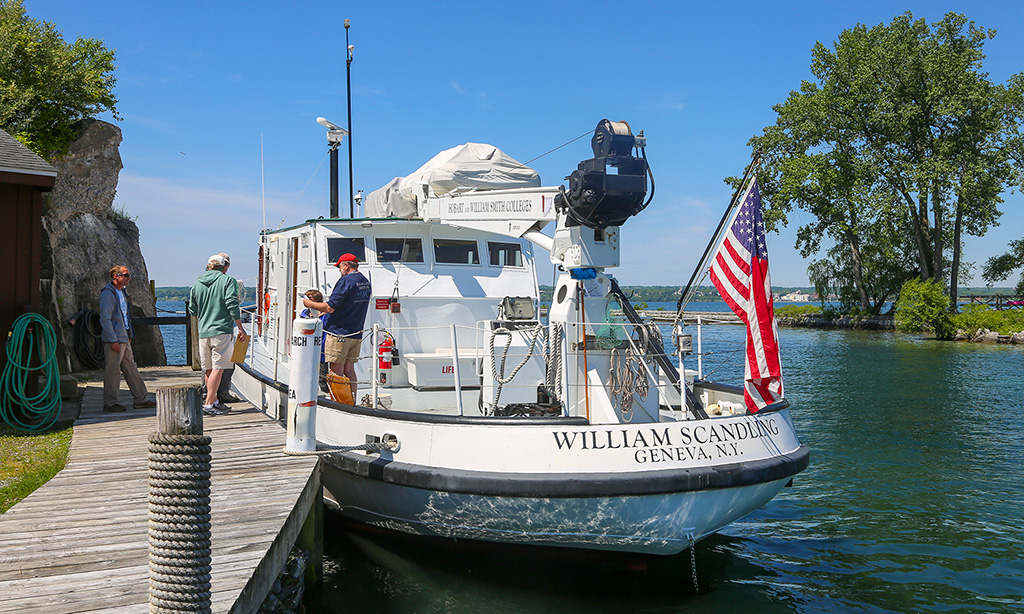



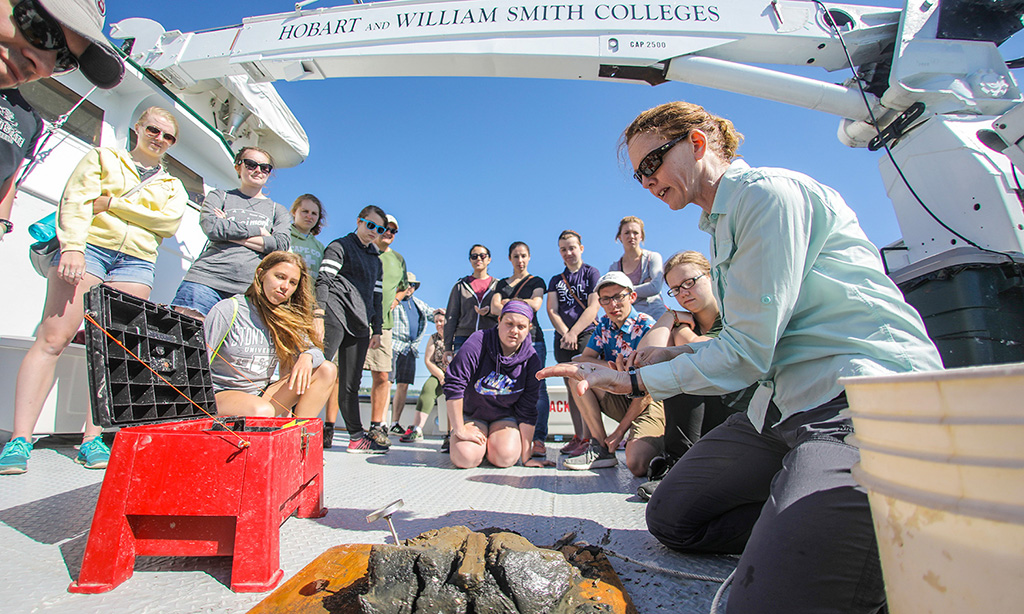
![$intro-image[2]/descendant::img/@alt](/images/academics/geo/aq-abroad.jpg)
